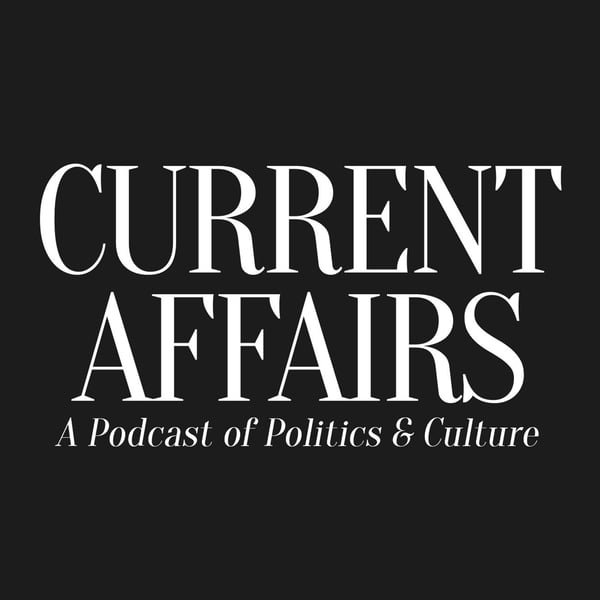A Leading Philosopher Makes The Case for Degrowth (w/ Kohei Saito)
Current Affairs
Current Affairs
4.4 • 645 Ratings
🗓️ 27 May 2024
⏱️ 39 minutes
🧾️ Download transcript
Summary
Transcript
Click on a timestamp to play from that location
| 0:00.0 | Welcome to Current Affairs. My name is Nathan Robinson. I'm the editor-in-chief of Current Affairs Magazine. I am joined today by Professor Kohei Saito. He is the author of the new book, Slow Down, The Degrowth Manifesto, available from Astra House. Professor Saito, thank you so much for |
| 0:42.0 | joining us at current affairs today. Thank you. Well, let's begin with the crisis to which your book |
| 0:49.5 | is a response. Could you maybe lay out for us the basics of what the kind of fundamental |
| 0:57.4 | crisis that you are trying to address is? |
| 1:00.3 | Yes, the book discusses the fundamental crisis in the Anthropocene. The Anthropocene is a geological |
| 1:07.3 | epoch where the human activities, especially the economic activities, radically |
| 1:12.2 | transformed our planet by massive consumption of fossil fuel, for example. So one of the representative |
| 1:18.4 | crisis of the anthroposin is climate crisis. This crisis will be worse and worse in the coming |
| 1:25.4 | decades, and this will create the increasing economic inequality and also resource scarcity accelerating inflation. |
| 1:34.3 | And that will also destabilize its geological order leading to conflicts and war. |
| 1:39.3 | So the crisis we're heading in the Anthropocene is a polycrisis, the combined crisis of |
| 1:46.3 | crisis of capital accumulation, ecological crisis, crisis of democracy. So this is something |
| 1:52.7 | that we didn't experience for many, many years. Maybe it's first time. So we need a radical |
| 1:57.7 | ideas to challenge this crisis. Yeah, I mean, you point out, you use this term, I mean, perhaps some of our listeners |
| 2:04.0 | have heard it before, perhaps some haven't, the Anthropocene, which is, I guess, used |
| 2:09.6 | to refer to, you know, we're used to these geological epochs, the, you know, the Holocene |
| 2:15.7 | and so forth, with the Anthropocene being this kind of era |
| 2:20.4 | where, as I understand it, humans are so transforming that the natural world, that the world itself |
| 2:27.5 | is now kind of defined by our relation to it. Perhaps you could tell us a little more about it. |
| 2:33.7 | Exactly. Geology is usually |
| 2:36.0 | considered as some kind of natural formation, natural phenomena. That has nothing to do with human |
| 2:42.0 | activity. But the situation has completely changed because our economic activities have so much |
... |
Please login to see the full transcript.
Disclaimer: The podcast and artwork embedded on this page are from Current Affairs, and are the property of its owner and not affiliated with or endorsed by Tapesearch.
Generated transcripts are the property of Current Affairs and are distributed freely under the Fair Use doctrine. Transcripts generated by Tapesearch are not guaranteed to be accurate.
Copyright © Tapesearch 2025.

